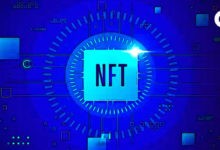Solana (SOL) Founder on NFT Royalties: «Ambiguity Is Bad for Crypto»

Anatoly Yakovenko proposed the concept of a flexible «win-win» strategy that could change the narrative in NFT development, trading, marketing and promotion.
Immutability instead of ambiguity
Yakovenko has taken to Twitter with a thread on dangerous discrepancies NFT developers and entrepreneurs should address. He is sure that the segment badly needs an unambiguous royalty mechanism as an «additional revenue» tool for creators.
I think what is obvious to me on NFT royalties
1. they are a really cool mechanism for creators to earn additional revenue
2. if it’s not enforced directly in the tech the market will move around them
3. they must be unambiguous to users?— toly ?? (@aeyakovenko) October 14, 2022
It is necessary to change the very concept of ownership in the NFT segment to make royalties fair and transparent. While NFTs cannot be solely owned by either the creator or the trader, the former should retain «certain» rights to effectively enforce royalties.
Technically, this can be achieved through «an additional persistent mint» added to this or that token. Through this mint, the creator should be able to define the rights management scheme for his artworks.
On the other hand, there is no «one-size-fits-all» mechanism here: the creators themselves should be able to choose the design of the royalty scheme: it can be the «Harberger Taxation» principle or any other.
Searching for better royalty designs for NFTs
Yakovenko stressed that the design of the rights applied to this or that token should be clear to all sides involved before the purchase takes place.
In the comments to his tweet, crypto engineers and NFT fans proposed various tax models for digital tokens: super-high royalties for the first sale, 2-3% tax on every next sale and so on.
There is a heated debate around the perfect royalty scheme for the crypto segment. As covered by U.Today previously, NFT marketplace X2Y2 made headines in August 2022 by reducing all royalties to zero.
Its representatives highlighted that this approach would make NFT creators switch toward VC funding, which is a dominant one in the rest of the Web3 segments. This, in turn, would make the NFT segment more balanced, democratic and resilient to manipulation and hype.






 Bitcoin
Bitcoin  Ethereum
Ethereum  Tether
Tether  USDC
USDC  TRON
TRON  Dogecoin
Dogecoin  Cardano
Cardano  Monero
Monero  Bitcoin Cash
Bitcoin Cash  Chainlink
Chainlink  LEO Token
LEO Token  Stellar
Stellar  Zcash
Zcash  Litecoin
Litecoin  Hedera
Hedera  Dai
Dai  Cronos
Cronos  OKB
OKB  Tether Gold
Tether Gold  Ethereum Classic
Ethereum Classic  KuCoin
KuCoin  Cosmos Hub
Cosmos Hub  Gate
Gate  Algorand
Algorand  VeChain
VeChain  Dash
Dash  Stacks
Stacks  Tezos
Tezos  TrueUSD
TrueUSD  IOTA
IOTA  Decred
Decred  Theta Network
Theta Network  Basic Attention
Basic Attention  NEO
NEO  Synthetix
Synthetix  Qtum
Qtum  Ravencoin
Ravencoin  0x Protocol
0x Protocol  DigiByte
DigiByte  Zilliqa
Zilliqa  Nano
Nano  Siacoin
Siacoin  Holo
Holo  Numeraire
Numeraire  Waves
Waves  Ontology
Ontology  Status
Status  Enjin Coin
Enjin Coin  Hive
Hive  BUSD
BUSD  Pax Dollar
Pax Dollar  Lisk
Lisk  Steem
Steem  Huobi
Huobi  OMG Network
OMG Network  Bitcoin Gold
Bitcoin Gold  NEM
NEM  Augur
Augur  Bitcoin Diamond
Bitcoin Diamond